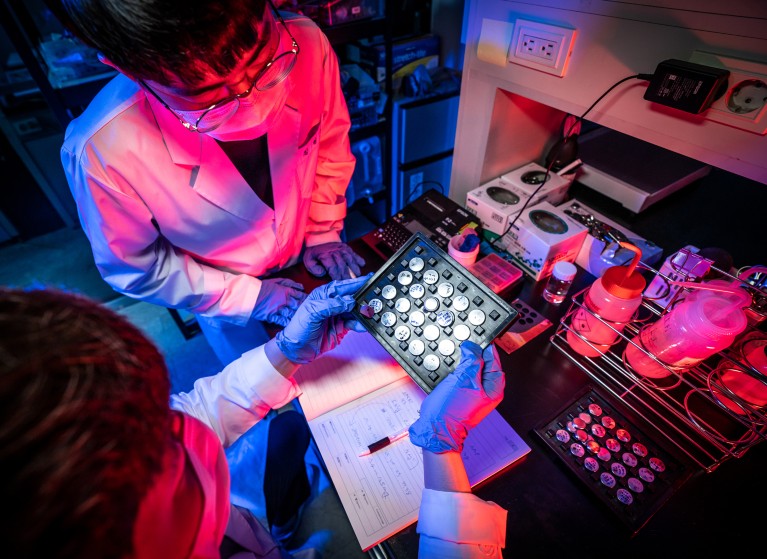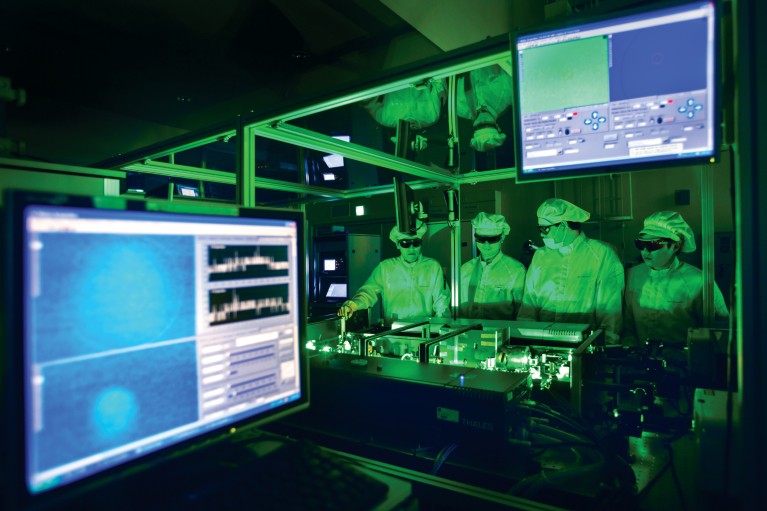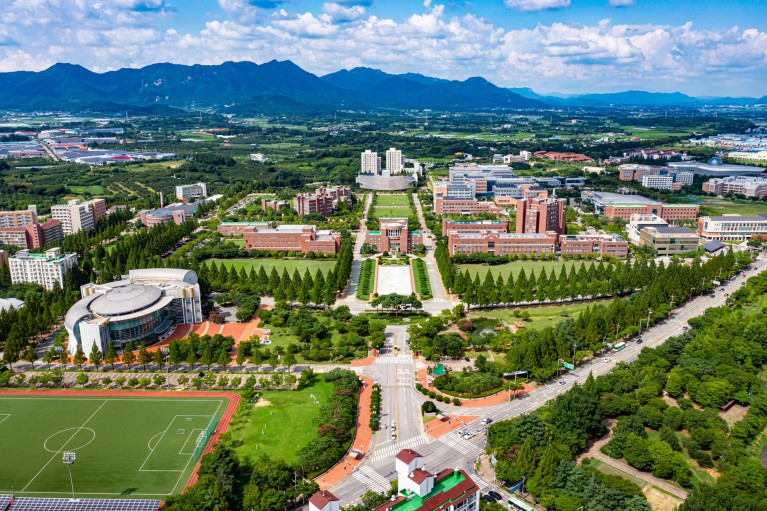
The GIST Research Institute for Solar and Sustainable Energies (RISE) is focused on developing next-generation energy solutions.© GIST
Gwangju Metropolitan City, a busy regional hub of 1.4 million, 270 kilometres south of Seoul, is set to take on a new identity as South Korea’s home of artificial intelligence (AI). As part of an ambitious national strategy, the government and Gwangju are investing 411.6 billion won (US$350 million) to build an AI Innovation Cluster by 2023. The vision is for a city that has as many as 500 AI-related startups and manufacturing facilities.
At the heart of the project is the Gwangju Institute of Science and Technology (GIST), a progressive institute with 2,319 students, 194 faculties, and 223 employees. In September 2021, the institute secured 14.2 billion won (US$12 million) to build what will become one of South Korea’s largest and most advanced high-performance computing centres.
Three decades of growth
Founded 28 years ago to advance the country’s competitiveness in science and technology, GIST has quickly grown from a graduate school with only five departments to become a world-class university with both undergraduate and graduate programmes. The institution has consistently ranked among the world’s best for the number of citations per faculty member, being ranked by QS as fourth in the world and first in South Korea for 2021.

The GIST Advanced Photonics Research Institute (APRI) uses the most powerful operational laser in the world to explore relativistic laser-matter interactions.© GIST
“We attribute this success to our extremely selective hiring process that emphasizes output in the highest impact journals, and to providing conditions where faculty can be fully immersed in research,” says Chunghee Cho, the dean of undergraduate and graduate studies at GIST. The institute has offered an establishment grant of 200 million won (US$170,000) to new faculty since its early days. Faculty members can also receive annual research grants from the institute, in addition to other sources of funding that they can readily obtain. “While this approach was highly unusual at the time in South Korea, it became a model for other top universities to follow,” says Cho. “Furthermore, the small student to faculty ratio of 11 to 1 lessens the burden from lecturing while improving educational quality for students.”
Korea’s startup mecca
Cho says education will be a core part GIST’s contribution to the Gwangju AI Innovation Cluster. In October 2019, GIST established the AI Graduate School, which places a strong emphasis on launching startups. During the five-year programme, students learn core AI theories and gain practical experience through international internships while also learning about business and financing strategies to commercialize their research as entrepreneurs. “Our aim is for 10% of these graduates to create a viable business in real life,” says Cho.
Because of GIST’s track-record of fostering successful startups, the South Korean government has named GIST the best university for starting a new business for three consecutive years from 2017 to 2019. “South Korea has promoted startup development for the past 10 years, and GIST has continued to encourage its members to embark on entrepreneurship,” says Cho. “Some call GIST a ‘startup mecca’, as we established one of South Korea’s first university departments dedicated to supporting promising business ideas from faculty and students.”
An example is the SOS Lab, founded by former student Jiseong Jeong. The company specializes in the development and manufacturing of light detection and radar (LiDAR) sensors, considered a crucial part of self-driving technology. SOS Lab is the only permanent LiDAR company in South Korea and has won more than 12 domestic and international awards for its core technology. LEDinside, a leading market research platform in the sensor field, named SOS Lab one of the most promising LiDAR firms at Consumer Electronics Show 2019. “For that, they are receiving tremendous attention in the South Korean LiDAR market and are taking the lead in strengthening the country’s competitiveness in the field,” says Cho.

An aerial view of GIST’s campus in Gwangju, Korea.© GIST
Cross-disciplinary thinking
Since its establishment in 2010, the institute’s undergraduate programme, called GIST College, has focused on educating creative problem solvers who can draw upon a wide range of disciplines to devise new solutions. “GIST values literacy in the humanities, and we’ve pioneered an innovative educational model that fuses the humanities with science,” says Cho. Despite being an institute for science and technology, GIST offers a liberal arts education in history, philosophy, social studies, and art, with students taking 4 to 10 additional credits in the humanities compared to other similar universities in South Korea. “By enriching scientific knowledge with a liberal arts style of education, we prepare our graduates to become better leaders with a well-rounded understanding of societal issues and science,” says Cho.
GIST is also creating more opportunities for undergraduates to pursue AI. In September 2021, GIST College began offering an AI minor programme, aimed at developing AI applications for other fields. Cho says, “The aim is for our students to think about how to apply AI not just to computers, but more broadly to other fields like biology and chemistry.”
The institute also invests in undergraduate education by sending students to top-notch universities abroad, such as the California Institute of Technology and the University of California, Berkeley. Furthermore, an immersion programme over summer vacation gives undergraduates the opportunity to experience graduate school level research earlier in their education. “Our belief is that without deep knowledge, there will not be a convergence of disciplines,” says Cho. With an emphasis on fusing knowledge, GIST continues to pioneer new models of education and research to produce specialists who will lead society’s transition into the fourth industrial revolution.



 Nature Index 2021 Young Universities
Nature Index 2021 Young Universities